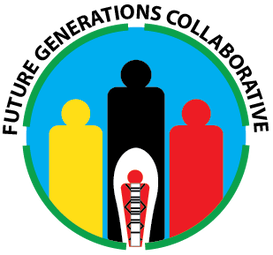Future Generations Collaborative
About us
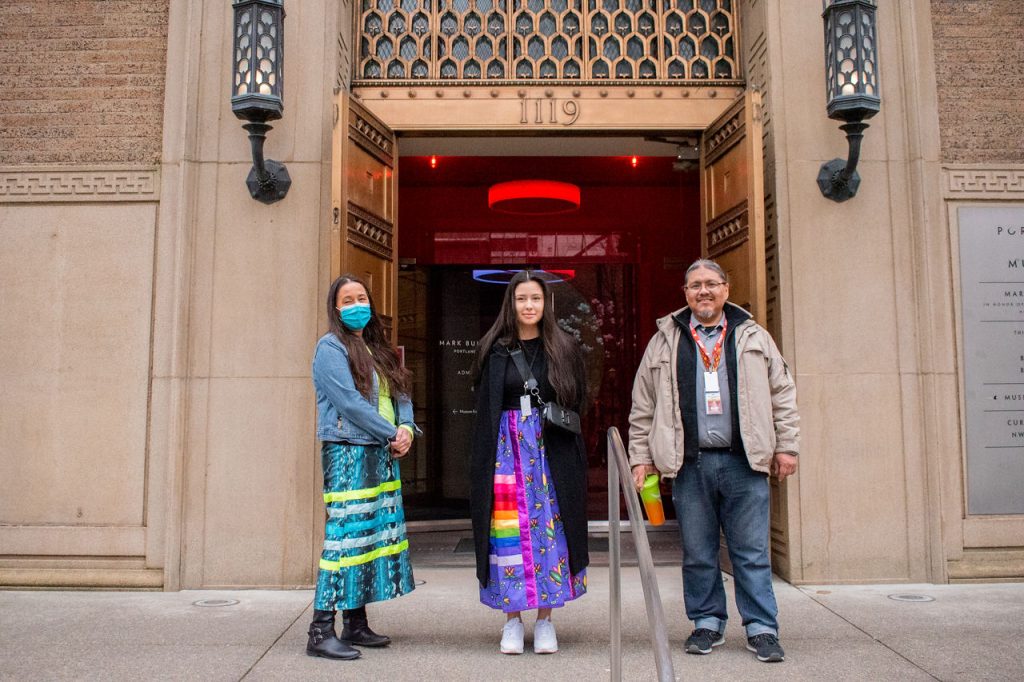
Mission Statement
Striving to generate a healthy and healing Indigenous community, the Future Generations Collaborative centers traditional values and collaboration in providing and promoting public health and wellness.
Our Values
Cooperative
Community Informed
Compassionate
Culturally Congruent
Strengths-based
Predictable
Trauma and Healing Informed
Consensus-driven
Sustainable
History
The Future Generations Collaborative (FGC) began in 2012 as a cooperative collective impact partnership circle of Native American and Alaska Native-serving organizations, Native community members and public health, health care, education, early intervention, and social services agencies working to increase healthy pregnancies and healthy births and strengthen Native families in Multnomah County. The FGC in the early years centered traditional values and collaboration in the prevention of Fetal Alcohol Spectrum Disorder (FASD), and provided support to community members who have been impacted by FASD, neuro, or environmental trauma. The FGC continues this legacy and over the past five years has evolved to address greater public health concerns in the local community through multi-generational educational programming, community driven engagement, Indigenized evaluation and research, and innovative policy shifts.
The FGC’s approaches are community-led and aim to heal the root causes of health inequities experienced by Native communities. Public health and the county government’s commitment to this community-led partnership and healing process makes the FGC unique. The FGC’s experience in serving the Native community in a collaborative way set them up for success to provide COVID response to the community in 2020. Community education, COVID testing, resource dissemination, community support circles, vaccinations and other COVID responses for three years set the FGC in motion to expand their mission and services to be more inclusive of greater public health challenges impacting the Native community.
As part of the FGC’s ongoing body of work to utilize their trauma and healing-informed collective-impact model, the FGC is committed to using this approach to build community capacity and prioritize Native representation in the development and implementation of community health prevention-intervention approaches. This unique collaboration between the County and the FGC shows additional commitment by Multnomah County to sustain and increase funding to promote health and wellness in Native communities, develop and sustain equitable partnerships and prioritize Indigenous ways of knowing, being, doing, and healing within communities, and our health and social service systems.
In 2022, the FGC decided to become its own non-profit organization and continues to change and transform to best meet the needs and serve the community.

FGC Board of Directors
At the time of development, the four mode leads, two ENHs and a community partner stepped up to serve as the first board of directors.
- William Miller
- Kay EagleStaff
- Erin Angus
- Polimana Sierra-Long Joshevama
- Chenoa Landry
- Natalyn Begay
- Jillene Joseph
Our Partners
Future Generations Collaborative Partners
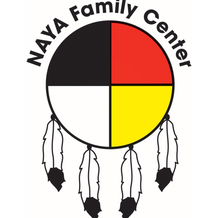
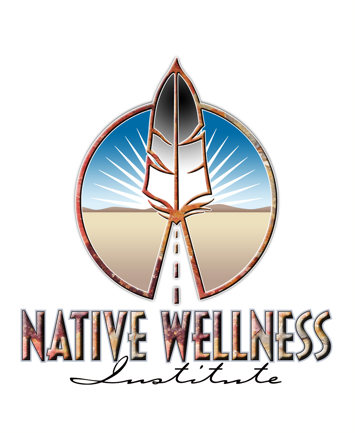
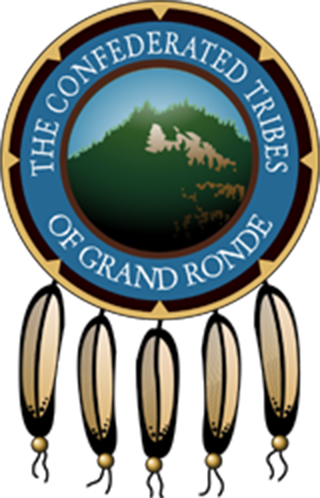
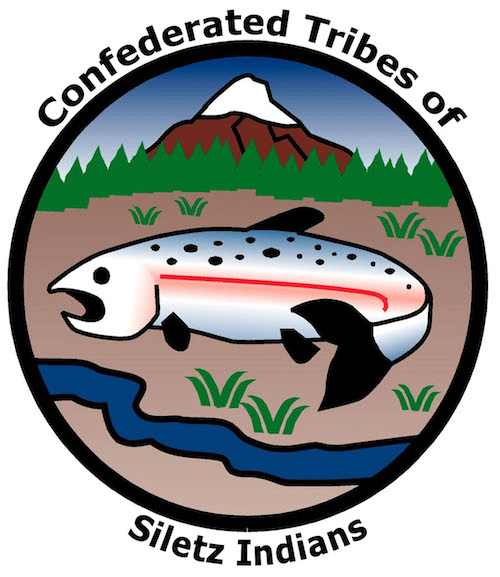

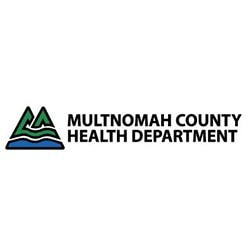


Elders and Natural Helpers
Elders and Natural Helpers (ENHs) have been an important part of the FGC. They are community members who are of service to the community and assist the Mode Leads in doing community engagement, education, policy work or help with the research and evaluation efforts.
ENHs had their first training at the beginning of 2013. They were trained in
- FASD
- Historical/intergenerational trauma,
- Facilitation skill development
- Community-Based Participatory Research (CBPR)
They became the eyes and ears of the FGC. They assisted with the initial research we did in the community and these results helped shape the early efforts of the FGC. They set up information booths and helped to coordinate and facilitate community gatherings, they assisted with community training and so much more. It was clear that more training was needed for them and the FGC designed and delivered the first Native-specific Community Health Worker training for the ENHs.
When the pandemic hit and the FGC switched gears, so did the ENHs who assisted with COVID response in the community. Many of the original ENHs are still involved with the FGC and many new ones have joined. Lifelong friendships have been developed and the value of being of service to the community remains.
Community Health Workers
Community Health Workers (CHWs) have been working in our tribal communities since time immemorial. From helping families birth children to gathering medicines, they continue to be vital to the health of our community in modern times. From hosting vaccination clinics and navigating mental health services to visiting with our elders and providing plant medicines, the CHWs continue to use a holistic care model to meet the needs of the community. Here are examples of some of the work of our CHWs:
- Health education and outreach
- Increase access to cultural activities and practices
- Resource sharing and referrals
- Social and emotional support
- Opportunities for healing
- Host community clinics/health screening
As a collaborative, the CHWs are employed by our partners and come together to be of service.
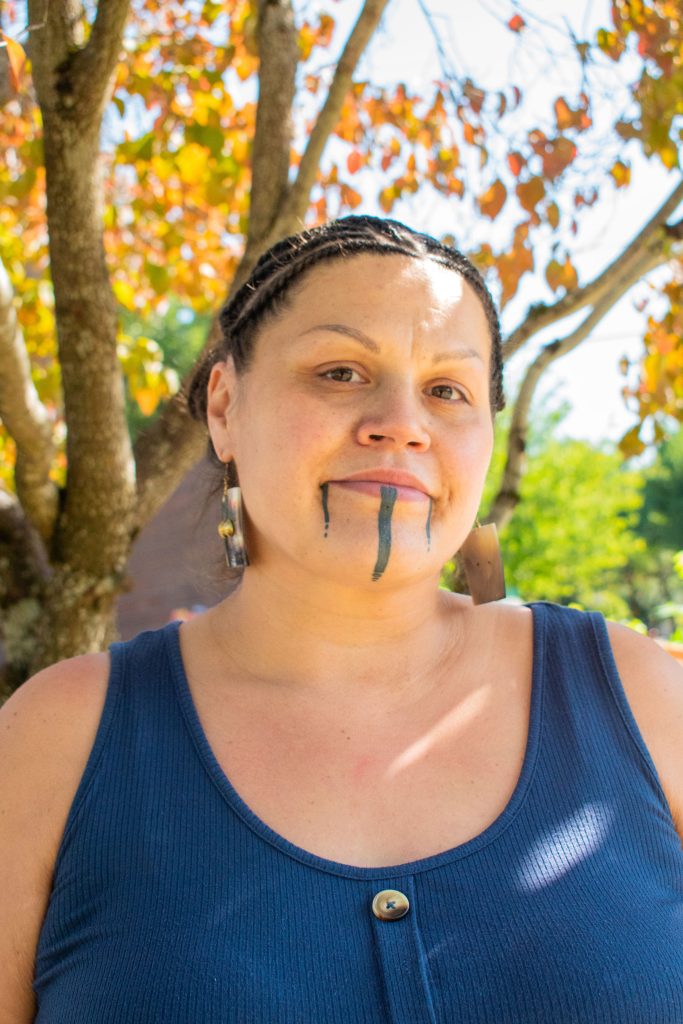
Jennifer Pirtle – Siletz (She/Her)
Jennifer is a single mom and full time student at Portland Community College. She has lived in Portland for eight years and is one of the Elder and Natural Helpers. She chooses to call this area home because of the beautiful Native Community that she considers family.
NAYA Family Center CHWs:
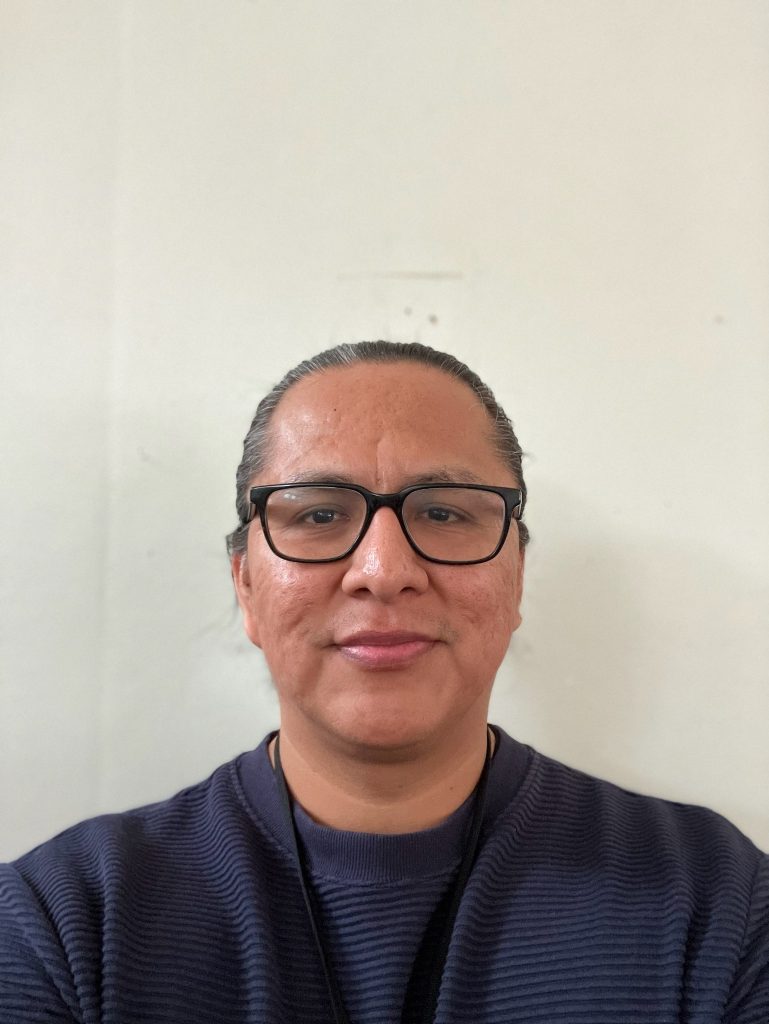
Devin Dugi – Diné (He/Him)
Devin is from Tuba City, Arizona and is of the Tangle Clan and born for the Manygoats Clan. As a CHW with NAYA, He is excited to work with awesome co-workers as they continue to help our Native community reach their definition of wellness. He looks forward to growing and learning how to provide culturally-informed and elder-led approaches to community health. In his spare time, Devin and his family enjoy traveling to local lakes for fishing, hiking, and kayaking and they are also big Phoenix Suns and Arizona Cardinals fans.
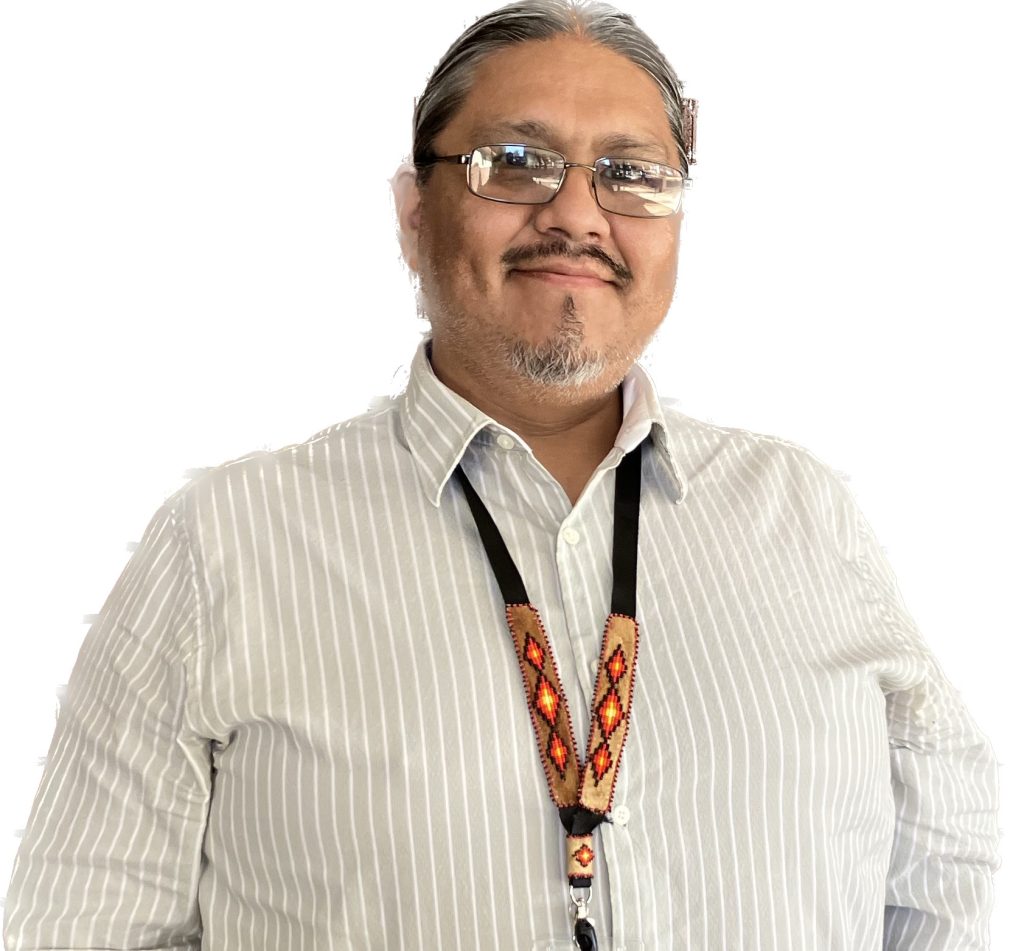
Victor Wilson – Athabaskan, Klamath/Paiute (He/him)
Victor was born here in Portland and raised in Eugene. Victor left Eugene around 1998 and traveled around California, Nevada, and spent a few months in Hawaii before coming back to Portland in 2005. Victor has two beautiful daughters. He is a traditional dancer and sings with the Four Directions family drum with whom he travels throughout Native country for Powwows and ceremonies. Victor also provides presentations around the NW area about drumming and singing. He is excited to be here and ready to learn more to help families in need.
Mode Leads
The FGC originally began as a collaboration of many organizations- both Native and non-Native who were interested in helping to reduce substance affected pregnancies and support healthy babies and families. The Mode Leads are not staff of the FGC but represent the FGC and are funded through contracts between their respective organization and Multnomah County Health Department.
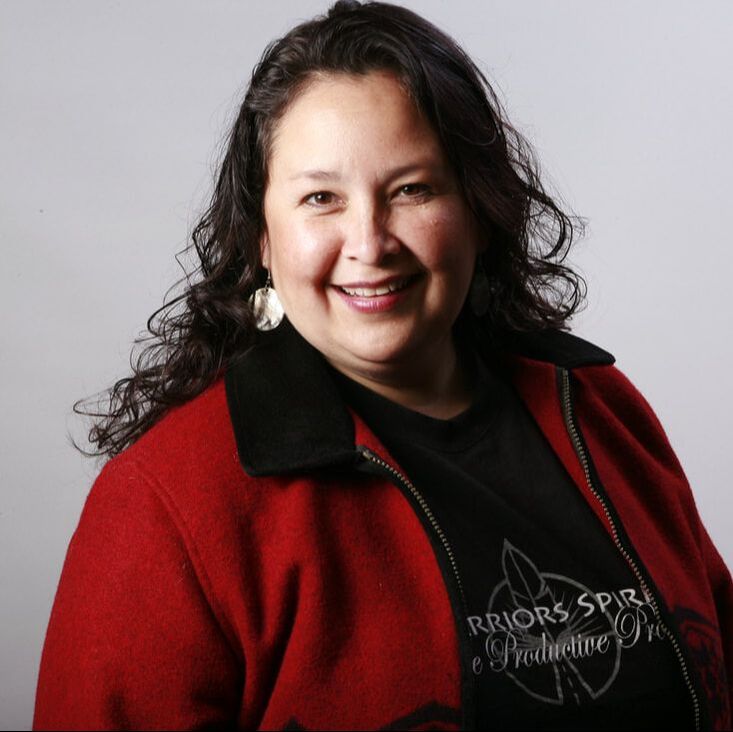
Jillene Joseph – A’aniih (She/her) – Engagement Mode Lead
Jillene is the Executive Director of the Native Wellness Institute. For nearly 40 years she has provided wellness and healing training and technical assistance to tribes, First Nations and aboriginal organizations. Jillene is one of the 8 members of the International Indigenous Council of the Healing Our Spirit Worldwide movement. She has worked for her own tribe, for tribal health board’s and has always lived by her personal mantra of “Living the Warrior’s Spirit: being positive, productive and proactive.”
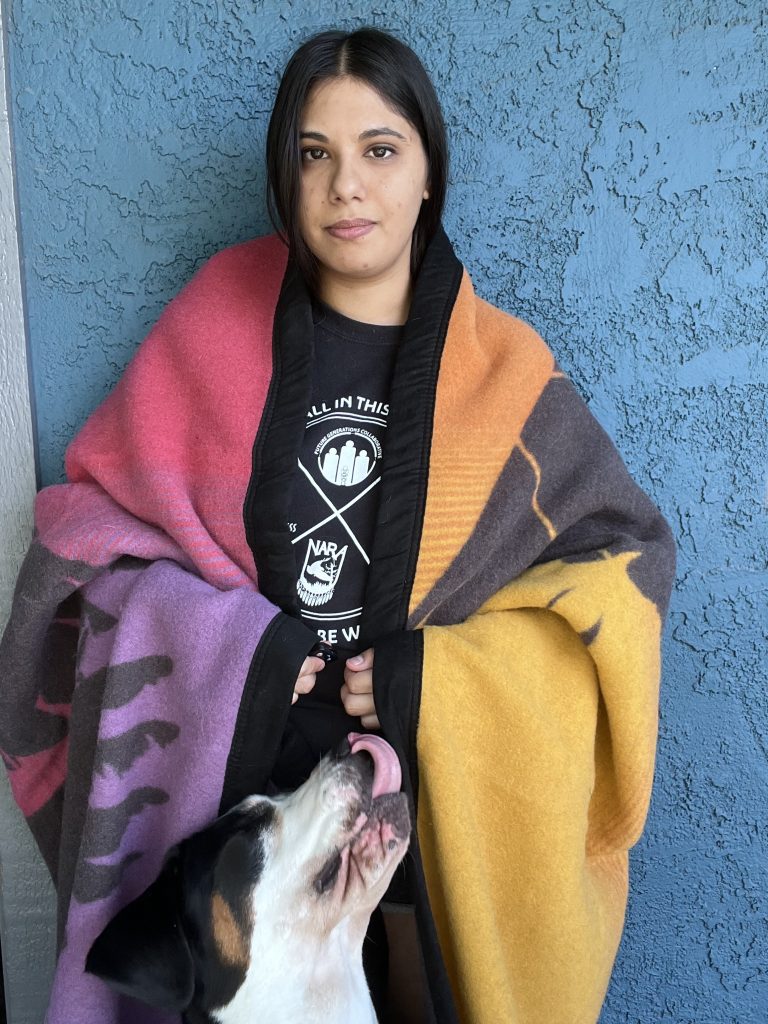
Polimana Sierra-Long Joshevama – Hopi (She/they) – Research and Evaluation Mode Lead
Polimana currently lives in Tucson, Arizona. A post-baccalaureate program at OHSU brought them to Portland after completing a bachelors at Dartmouth. Working as a COVID Community Health Worker immersed them in the urban Indigenous community in Portland which is hard to leave. When they’re not working or studying, they love getting their hands dirty while tending to their extensive plant collection or training their service dog.

Natalyn Begay – Diné (She/her) – Policy Mode Lead
Natalyn is originally from Naayizi, New Mexico. She moved to the Portland area in 2018 and after finishing her MPH and found a home at the FGC. Since 2005, she has been working in public health across tribal nations and urban communities. Natalyn is committed to supporting the community in reconnecting and strengthening cultural practices to address health disparities. In her free time, she enjoys traveling, cooking, and spending time with family.
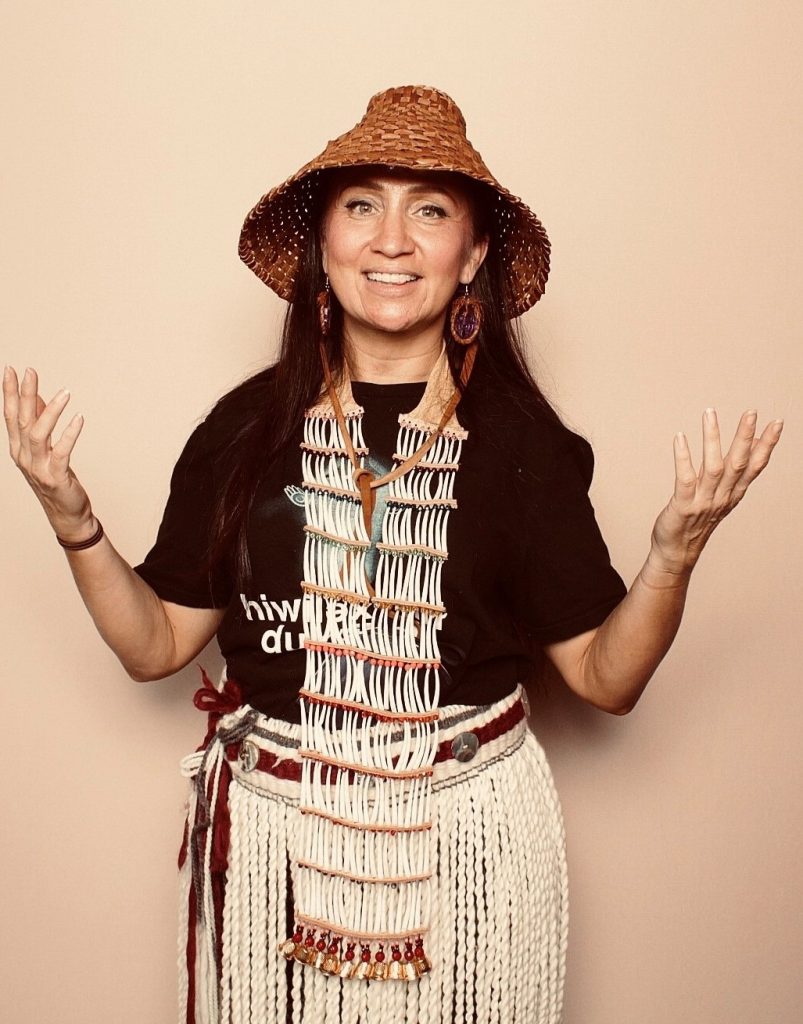
Chenoa Landry – Puyallup (She/her)– Education Mode Lead
Chenoa was born and raised in the Pacific Northwest and has also lived in many other places throughout what is now known as the U.S. For over 20 years, her work and life experience has focused on wellness for Native communities, working for her own tribe, other tribes, and Urban Native organizations. She enjoys sewing, beading, creating things with her hands, dancing, singing and learning new things. Chenoa strives to be a good ancestor.
FGC Staff
The FGC as a non-profit organization received its first contract from Multnomah County Health Department to continue the services of Chaku Manaqi Lush, the FGC’s Help Me Grow project. This allowed the FGC to hire the first staff members.

Kristen Bell – Northern Arapaho (She/her) – Family Systems Navigator
Kristen is from Cheyenne, Wyoming and grew up here in Portland. She is a mother of 4 and likes to travel with her family, garden, and volunteer while sharing cultural knowledge with others by teaching at her children’s school. Kristen enjoys cultural activities such as beading, drumming and learning about others culture and traditions. She is passionate about what she does as an advocate in the community. She continues to support community wellness by providing different ways to help others and creating space for healing from generational trauma.

Raven Harmon – Athabaskan (She/her) – Parent Support Specialist
Raven is Athabascan, Yupik and Colville on her maternal side and Eastern Shoshone and Ute on her paternal side. She grew up on the Grand Ronde Indian Reservation in Oregon and moved to Portland for college. She has a Bachelors of Science degree in Health Studies with a focus on Community Health from the Oregon Health and Science University and Portland State University School of Public Health. Raven actively practices different types of Native culture, specifically coastal and powwow. She attended the Chinuk wawa immersion school based around her Native language and it was also spoken in the home. Today she continues to be a fluent speaker. Raven is grateful that she doesn’t recall a time when she didn’t know her language. Her goal is to utilize her background as a way to teach and encourage traditional ways, practice cultural sensitivity, and uplift our community by helping the next generation.

Gabriella Martinez – White/Mexican- Chaku Manaqi Lush (She/her) Project Director
Over the last few years, Gabi has immersed herself in Early Childhood Development and Project/Department Management in university funded childcare centers, private preschools and most recently, with NAYA’s Early Head Start program. She brings a wealth of knowledge in Early Childhood Development, Family Services and project management through learned professional experiences and in community. Gabi’s most cherished goal in life is creating, nurturing, and maintaining healthy and positive relationships with the families she serves and the people she comes in contact with. She has been successful in previous positions in delivering successful outcomes through meticulous planning, positive team collaboration and by being a part of community to better meet families where they are at.
Career Opportunities
(We are not hiring at this moment)
